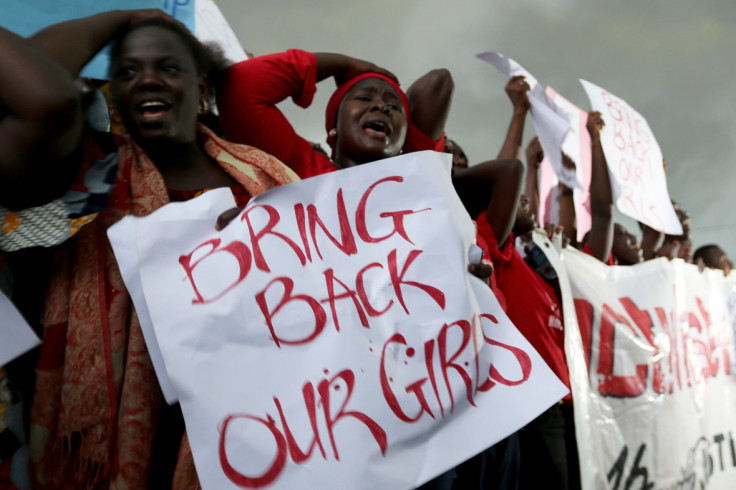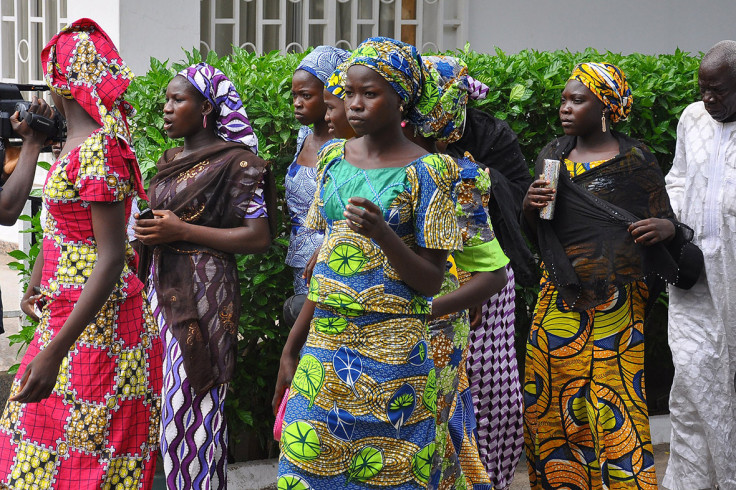Nigeria Boko Haram: Parents urge UN to help find Chibok girls as 'government not able'

The parents of some 220 schoolgirls kidnapped by terror group Boko Haram last April have asked the UN to help them find their daughters.
A group lobbying for government action on behalf of the parents met with UN representatives in Nigeria and also appealed to Unicef, Reuters reported.
The move came after the Nigerian government was accused several times by the inhabitants of Chibok, a village in Borno State where the girls were abducted, of not doing enough to locate and free the captives.
Who are Boko Haram militants?
Boko Haram, which fights against Western influence in Nigeria and aims to impose its version of sharia law in the country, declared an Islamic caliphate in Gwoza, along the Cameroon border, in August 2014.
The group has been raiding several cities in the north of the country in a bid to take control of more land.
Violence linked to Boko Haram's insurgency has resulted in an estimated 10,000 deaths between 2002 and 2013.
Three states, Adamawa, Borno and Yobe have been under a state of emergency since May 2013, due to Boko Haram's deadly attacks.
"If the government cannot take action, we are asking for the UN to come in and help and if they reject, we just don't know what to do," Reverend Enoch Mark, leader of the parents, said.
UN officials have not yet released any comment.
Boko Haram often kidnaps civilians, including hundreds of children, amid suspicions it uses them to carry out suicide attacks.
The Chibok mass kidnapping caught the attention of the international media, prompting prominent politicians and celebrities to publicly condemn the abduction.
Hundreds of people joined the Twitter campaign #BringBackOurGirls to raise awareness of the issue while countries including Britain, France and the US joined Nigerian troops in the search.
The militants originally kidnapped nearly 300 girls, but about 50 managed to escape.

Loss of confidence in the government
The new appeal came after Nigeria's President Goodluck Jonathan was deemed unable to combat terrorism in the country.
Last June, Nigeria's former president Olusegun Obasanjo expressed his frustration at the inadequate negotiations between the government and terrorists.
His comment came as Boko Haram had asked for the release of some prisoners in exchange for the girls, but Jonathan rejected the exchange deal.
The Nigerian government's ability to counterfeit terrorism in the country has further lost credibility after it announced last October that a ceasefire deal had been reached with Boko Haram members.
Experts cast doubt over the validity of the truce, as it was not confirmed by Boko Haram's leader Abubakar Shekau.
Shortly after, Shekau released a video in which he called the claims "lies".
"We did not negotiate with anyone," he said. "It's a lie. It's a lie. We will not negotiate. What is our business with negotiation? Allah said we should not."
Since the government announced the alleged ceasefire agreement, Boko Haram has stepped up its attacks killing hundreds of people in the northern and central Nigeria.
In one of their latest attacks, the terrorists bombed a mosque in the city of Kano during Friday prayers, killing at least 200 people in the blast and subsequent shooting massacre.
In January, the group captured a military base in the town of Baga, northeastern Nigeria, after troops deserted their stations.
The seizure of the base came as reports emerged that Nigerian troops are refusing to fight the insurgents claiming they are not adequately equipped with weapons and they are deployed in rebel areas for long periods of time without food.
Last October, local media reported that some soldiers allegedly injured themselves to avoid deployment in areas controlled by Boko Haram. It is believed that they refused to fight the insurgents after clashes had caused the deaths of hundreds of troops.
© Copyright IBTimes 2024. All rights reserved.






